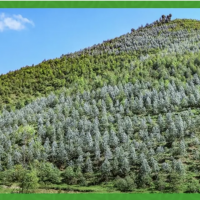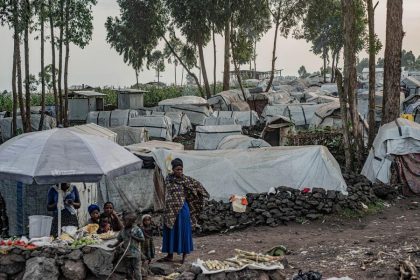Southern African countries might sadly soon find themselves with virtually no markets to sell their ivory worldwide.
This follows the World Wildlife Fund (WWF) Washington-based Senior Vice President’s announcement today that the WWF is on a drive to shutdown all Asian ivory markets.
“These are extra-ordinary achievements,” said WWF Senior Vice President and General Counsel, World Wide Fund (WWF) U.S. Ginette Hemley; referring to the progress made so far towards shutting down ivory markets in China in 2017 and Hongkong last week.
Ms Hemley said that for the WWF global ivory markets shutdown to work, they would need collaborative international efforts, including law enforcement and capacity building. Sadly, they are shutting down SADC countries ivory markets without consulting them.
If ivory was oil that Russia, Iran, Saudi Arabia, Kuwait and the U.S. and other Arab countries are trading, the WWF would not dare shutdown their markets as they are doing to the Southern African race that they look down upon. The oil that the oil producing countries trade is harmful to the environment, including wildlife but the WWF would not dare tell these countries not to trade in oil to save wildlife.
Asian countries are the most lucrative ivory markets for Southern African countries and their shutdown might just end their hopes of ever trading in ivory, possibly forcing them to turn their national parks into agricultural land as the elephant and other wildlife continue to be devalued by both bans in ivory trade and also hunting.
Previously known in SADC government circles to support ivory trade and elephant hunting, including other types of wildlife; the WWF’s Asian ivory markets shutdown declaration today was as shocking. SADC governments be warned, the WWF is now a hardcore animal rights group. It plans to raise US$20-$25 million to end domestic ivory trade in Asian markets, including China, Japan, Thailand and Vietnam.
The WWF’s ill-informed plan to shutdown Asian ivory markets will irreparably damage African people and wildlife’s wellbeing, particularly elephant conservation.
The WWF’s planned shutdown of the Asian ivory markets will force African governments to divert their poverty alleviation and public infrastructure budgets to support wildlife conservation. Not good for Africa, while rural communities that share the land with wildlife walk barefoot, without decent schools, clinics, roads and with school girls missing class for lack of sanitary pads but living in elephant-rich areas.
For the past 44 years, Southern African rural communities of Botswana, Namibia, South Africa, Zambia and Zimbabwe have continued to pin their hopes for a better life on getting CITES permission to trade their abundant wildlife products.
If these communities, who share the land with wild species, can earn money from the wildlife that surrounds and endangers them, they will stop aiding poachers. In fact, when they have a stake in the long-term wellbeing of wildlife, poaching will end. They will stop it.
“I was once a poacher but have since stopped upon seeing community benefits from wildlife,” said the late Botswana Deputy Chief of Kavimba, Kachikau Village, Luckson Masule, in 1997.
Without trade in ivory and rhino horn and with an absence of hunting, Africa has no money to look after its wildlife.
Meanwhile, Egypt (African Union Chair), Malawi, Rwanda and Zambia are in danger of being denied their right to vote at CoP18 for failing to submit original credentials to the CITES Secretariat before the start of the meeting. They have been asked to sort out their documents as soon as possible. If they are not allowed to vote this could have negative implications on many issues, as their representatives would not be officially recognized as well as their proposals. Egypt fired back saying that its papers are original.
“We used an electronic signature and we have done this before,” said an Egyptian representative.
Elsewhere, the Kenyan Wildlife Service defied President Uhuru Kenyatta’s decision to have Kenya support Botswana’s ivory trade proposal at CITES CoP18. This directive followed President Kenyatta’s recent meeting with Botswana President Mokgweetsi Masisi in Kenya in which he endorsed his country’s support for Botswana ivory trade bid.
“The Western animal rights groups have and continue to pay the Kenyan Wildlife Service millions of U.S dollars in exchange for votes against ivory and rhino horn trade as well as on other wildlife use and trade issues,” said a Botswana Government official who spoke on condition of anonymity. “The Kenyan delegation from the Kenya Wildlife Service let us down at the 11th hour because they cancelled their flight to Botswana a day before our meeting in Gaborone; to finalise the agreement to vote in support of Botswana’s ivory trade bid at CITES CoP18 in Geneva.”
The pro-sustainable use U.S. based Ivory Education Institute Managing Director Godfrey Harris said that this inter-governmental dispute playing out in public “is not only shocking, but embarrassing.”
“The Kenya Wildlife Service was and continues to be paid a lot of money by animal rights groups that use money to entice them not to support ivory trade and wildlife hunting,” said the Botswana Government official. “This is why they defied the vote for Botswana ivory trade proposal directive from President Kenyatta.”
In what is clearly a disturbing trend of Western animal rights groups’ are continuing to use of money to make some ‘weak’ African countries oppose any form of wildlife use, including trade in ivory and rhino horn. It was learnt that part of the total of 30 Kenyan delegation’s CITES CoP18 travel, food and accommodation costs were paid by a Western animal rights groups, People for Ethical Treatment for Animals (PETA).
Meanwhile, a senior Malawian delegate confirmed that one of their delegates is being funded by the International Fund for Animal Welfare with the rest of them being funded by the German Technical Cooperation Agency. The Malawian delegation raised eyebrows when they did not join a SADC pro-wildlife products trade logistical meeting held at the start of the CITES CoP18.
Additionally, delegates from Chad shamelessly confirmed at Ibis Hotel that another Western animal rights group, the Humane Society of the United States (HSUS) is funding them. This was after they were seen milling around a young U.S. blonde of the HSUS in what was clearly a money handout meeting. They later disappeared with her to an unknown venue. Country votes are on sale again as usual in exchange of voting against sustainable use at the command of their animal rights groups paymasters and ironically against the needs of African countries’ needs.
About the writer: Emmanuel Koro is a Johannesburg-based international award-winning environmental journalist who has written extensively on environment and development issues in Africa.
The Express News










